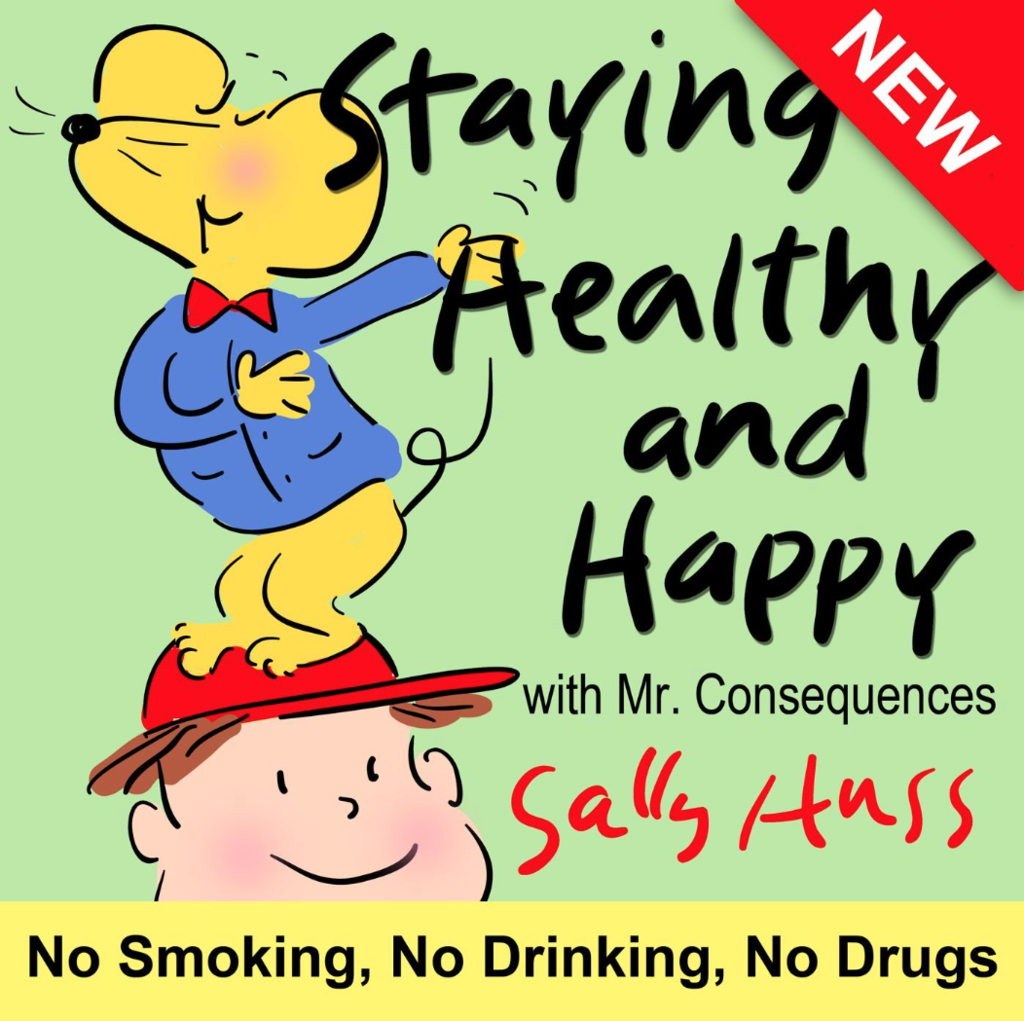Talking to your kids about staying away from drugs and alcohol can be daunting for some parents, but I’ve made it a part of a continued dialogue for a while now, so my kids know it’s not taboo to talk about. As part of a discussion for Red Ribbon Week, I wanted to share my thoughts on how to talk to your kids about drugs and alcohol, in hopes it will help some parents out there.
 My husband and I have taught our kids that to be completely in control of their body, they must stay away from harmful addictions. It’s hard enough to remain in control at a young age as they are learning the ropes of life, but even into adulthood, we should seek to be in control as much as possible. Here are my thoughts on how to talk to your kids about Drugs and Alcohol.
My husband and I have taught our kids that to be completely in control of their body, they must stay away from harmful addictions. It’s hard enough to remain in control at a young age as they are learning the ropes of life, but even into adulthood, we should seek to be in control as much as possible. Here are my thoughts on how to talk to your kids about Drugs and Alcohol.
I’m STILL trying to gain control of not over eating, and baking treats everyday, myself.
I’ve never tried drugs, nor have I introduced alcohol to my body. I decided a long time ago that I didn’t want to mess with addictive substances, and that’s what I’m teaching my kids as well.
To best care for our bodies, we gotta make sure we are:
- eating fruits & vegetables every day
- living a healthy lifestyle with exercise
- keeping up our spiritual nourishment
- working our brain through academics
- showing kindness in the face of frustration
- getting adequate sleep
We don’t need addictive substances thrown into the mix, because then it’s a whole new ball game!
I remember when I was 12 years old, I went home from school with my friend Nikki. I’d gone to her house a 100 times before, but this time was different. We went for a walk in her neighborhood, and she knocked on the door of a friend of hers. We went inside, and then to her backyard. Her friend pulled out cigarettes, and gave them to Nikki. As Nikki grabbed one, I could tell it was not her first time. She offered one to me, but I just said “no thanks” and that was it. They both smoked, as I stood there in shock. I never told my parents about it, I just decided I didn’t want to go to Nikki’s house anymore. Two years later, we moved and I never saw her again.
I never told my parents about it, I just decided I didn’t want to be a part of it because we HAD talked about drugs and alcohol, and I knew I didn’t want to be a part of it, even that early.
If you are a parent that hasn’t quite yet talked to your kids about the dangers of drugs and alcohol, allow me to share a few suggestions. I’m a firm believer that if we can start the conversation BEFORE it’s needed, then it will be easier for the kids to resist when they are approached.
How to Talk to your Kids about Drugs and Alcohol under the age of 8:
Make it a part of regular conversation. Find a picture book that talks about it in a light hearted way. If they grow up knowing it is something to stay away from, and know how to best do so, it won’t be as big of an issue. I recommend a picture book such as Staying Healthy and Happy

How to Talk to your Kids about Drugs and Alcohol between ages 8-12:
They are still young and fairly innocent at this age, and it’s PRIME TIME to be a constant in their life. The interesting fact about kids this age is that they CAN take care of themselves, need you less, so it’s easy to ignore them. But DON’T do it! Have the nightly conversations, the couch cuddles, the talks in the car. They may not want to sit and read a picture book, but they will talk to you and listen. If they know you care and are approachable, it will be easier for them to talk to you. Ask them about movies they are watching, ask them if they’ve seen alcohol, ask them if they know why it’s not safe to consume.
How to Talk to your Kids about Drugs and Alcohol between ages 13-18:
Keep the conversation going. Get to know their friends and their friends parents. Ask your kids about random things, so that they will want to talk to you about serious things. I talked to my teenage boys (15 and 17) today and asked them why they have never been tempted to try drugs or alcohol. This is what they said:
- It would distract us from our goals
- It’s not healthy, and we want to be in good shape for our running
- We choose friends who we know wouldn’t do that, so there is no temptation
- You and dad never have, so it just doesn’t interest us
I loved hearing from them, and I thought that was the best way to share what to talk to teens about, surrounding staying away from drugs and alcohol.
They both shared they’d never specifically been OFFERED drugs or alcohol, but if they wanted it, they knew right where to get it.
I then asked my boys…what if you were at a friends house, whose parents did have alcohol around, and they offered you a drink, what would your response be? They both replied in their own words something along the lines of, “I would say no, and that it wasn’t smart and not a good idea and they shouldn’t do that…”
I was thinking it would be great to just say, “no thanks!”
Connecting as a family:
I feel strongly that in connecting as a family, kids won’t have to look outside the home as much for acceptance. I’ve got a free e-book where I share 10 Intentional Ways to Bring your Family Closer Together, and I believe in it. Things as simple as nightly family dinner, playing board games, and attending church together are all ways to bond, and help the kids feel a part of something greater than just themselves.

{Our trip to Bryce Canyon National Park last April}
Studies have shown that the kids who try drugs and alcohol have a high percentage rate of a low connection with an adult. So PARENTS, I encourage you to do your part to form a bond and open the conversation channels with your kids. Not JUST about drugs, but about everything. If you do, it will make it easier for them to come to you for the hard things.
I read an article recently that cited the idea to have a code word with your teens, so when they text it to you, it means “help, I’m in a tricky situation” which will then result in you placing a phone call to them, saying it was time to come home. Then when you see them (pick them up or they arrive), no questions are asked, unless they choose to share. Ultimately, the specifics don’t matter, but what matters is that they are safe, and that they chose to leave that situation.
Don’t be scared to talk to your kids, and if they are young, start now! The more it’s commonplace conversation to talk about tricky things, it won’t be so uncomfortable when they are older.
For more tips, head to Drug Free Texas.
Disclaimer: I partnered with Texas Health and Human Services to promote Red Ribbon Week, but all opinions are my own.





